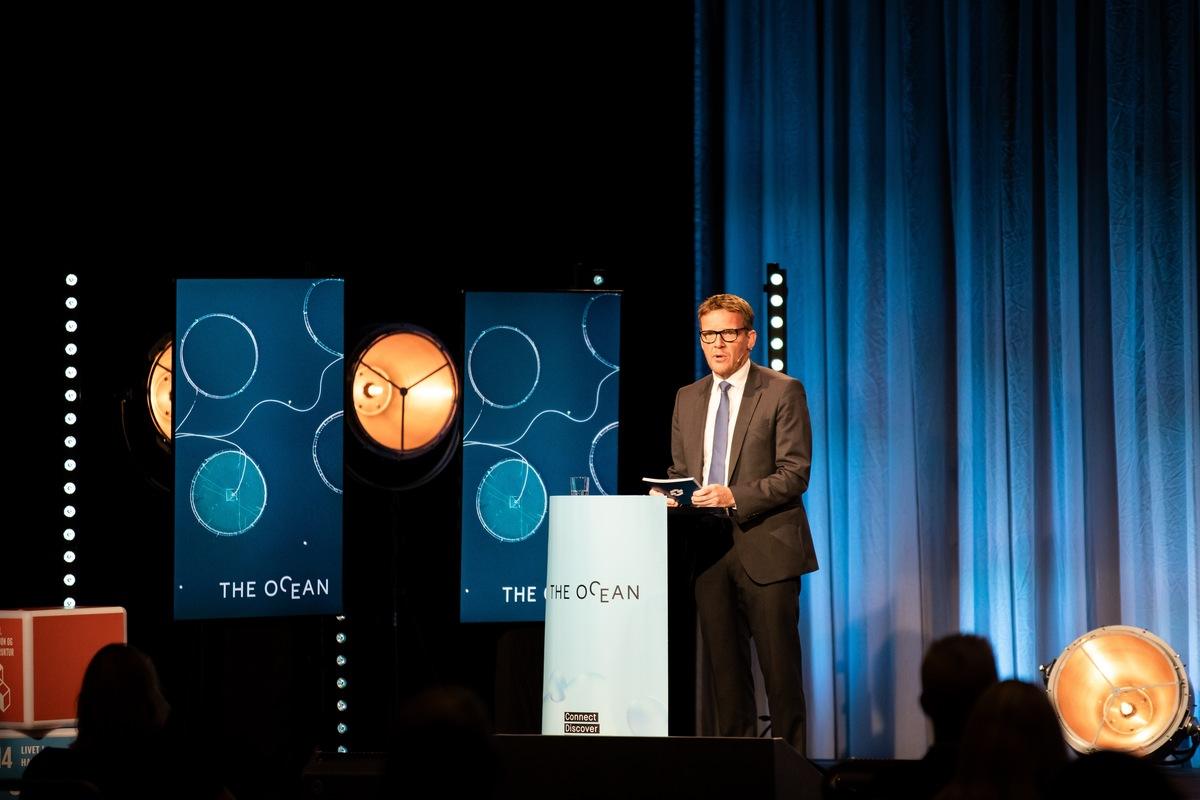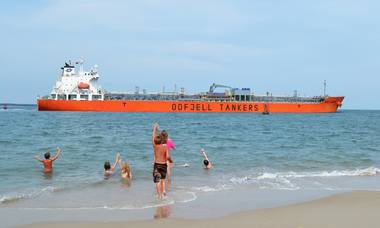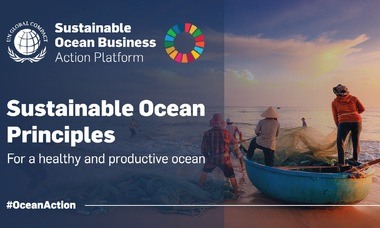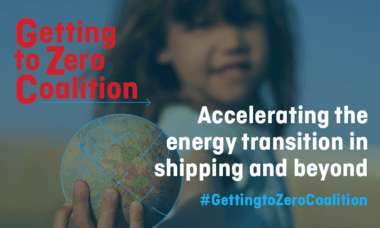“The climate challenge is on top of the agenda at Odfjell, and we are investing significant resources to ensure that we are at the forefront of the energy transition,” Mørch said, adding that “although it will take time, we hope to be one of the first deep-sea shipping companies to reach the goal of zero emission.”
Odfjell’s fleet of 80+ chemical tankers is part of a massive global industry of about 90,000 ships. Around 90% of goods are carried by sea, and this is expected to grow further in the coming decades: OECD estimates that the demand for ocean transport will nearly triple towards 2050, and therefore the dependency on ships will also grow.
Shipping remains the by far most efficient and environmentally friendly way of transport, but due to its herculean size, the global commercial fleet is still responsible for 2-3% of greenhouse gas emissions.
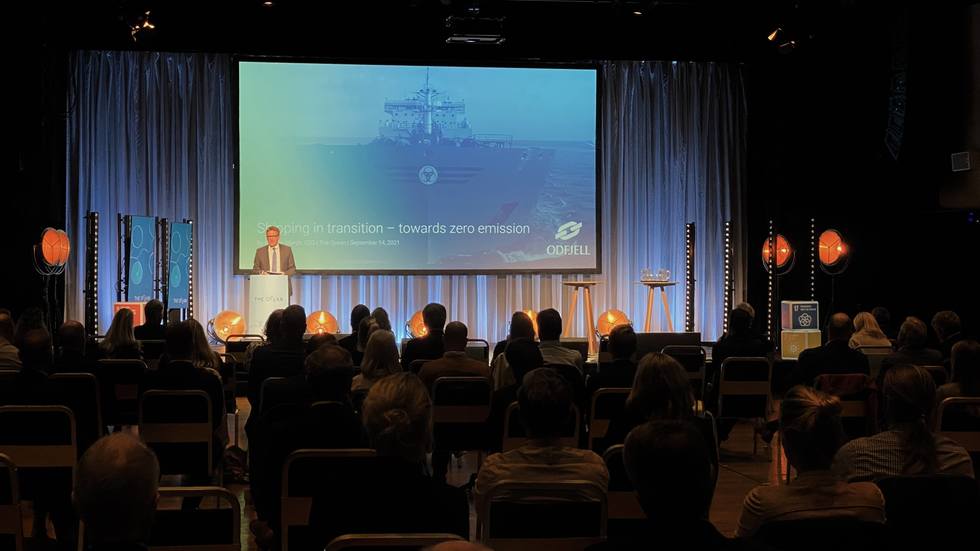
CEO Kristian Mørch on stage. The Ocean event is a hybrid two-day conference, with delegates attending live and via webast.
Challenge #1: Access to renewable energy
“The biggest challenge we have in reducing emissions is that ships today burn fossil fuels that emit CO2. There is a common misunderstanding that we don’t have the technology and the tools to solve the challenge. This is not true, but what we don’t have, is the availability of the fuel types we need”, Mørch said.
To solve this, collaboration on a broader level is crucial:
“Governments need to commit to decarbonization and support the transition. But it cannot be just the Norwegian government and EU alone; we are part of a global industry, so we need global rules. Otherwise it will not work – we need a level playing field for the entire industry.”
Mørch pointed to technology, market-based measures and regulation as core factors, together with the most important of all: infrastructure.
“The only way we as an industry can solve the energy transition, and get to the goal of zero emissions, is through collaboration within and outside the industry so that the infrastructure we need is developed.”
Going beyond the IMO targets
The IMO ambition is to reduce carbon intensity by 40% by 2030 and reduce absolute emissions by 50% by 2050 compared to 2008. This transition will have a big effect on how ships are designed and operated.
“We do not think that an emission reduction of 50% is enough,” Mørch said when commenting on the IMO targets. “We have therefore set ourselves even more ambitious targets for reducing emissions. Our goal is to reduce our fleet’s carbon intensity by 50% as early as 2030 – and more importantly: we want to be carbon neutral in 2050”.
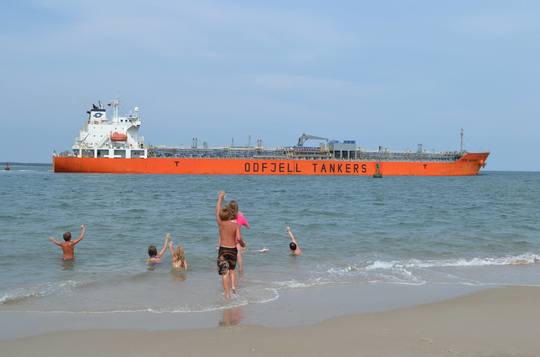
Odfjell’s climate targets:
-
Cut greenhouse gas emission by 50% by 2030 compared to 2008*
-
Dedicated to pursuing a zero-emission strategy and will only order vessels with zero-emission technology from 2030
-
Climate-neutral fleet from 2050
-
Actively support initiatives to develop technology and infrastructure for zero emissions and support international regulation to drive zero emission for our industry
* Intensity target, Emissions based on transport work, and Annual Efficiency Ratio (AER)
Off to a good start
Odfjell can show solid results so far, having reduced the fleet’s carbon intensity by more than 30% since 2008. The efforts continue with full speed: A zero-emission tanker concept is currently in development, Odfjell takes an active role in industry initiatives and partnerships, and was the first company in the global shipping industry to demonstrate the commitment to decarbonization by linking climate targets to financing by issuing a sustainability linked bond.
“I am very proud to say that in Odfjell we are off to a good start,” Mørch said.
“We have a good plan for how to reach our targets, but we are not even close to the finish line. In that respect, we are happy to see that our competitors, fellow shipowners, customers, partners, and governments worldwide are now taking joint responsibility and seeking solutions for a better future. But, I want to emphasize that the major success criteria ultimately is about access to renewable energy. Without that, the world will not be able to produce enough green fuels available for shipping.”
Watch the keynote on Youtube:
His Royal Highness Crown Prince Haakon opened The Ocean 2021 conference in Bergen, Norway, on September 14, 2021. The two-day event gathers leading marine research institutions and the ocean industries to discuss sustainable use of ocean resources, policy, taxonomy, value creation, collaboration and competence.
Among the organizers are PWC, DNB, Maritime Cleantech, the University of Bergen, the City of Bergen, Norce, and GCE Ocean Technology.
